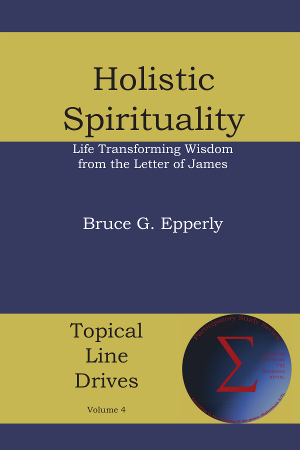NPP: A Starting Position
I’ve been reading some more on the new perspectives on Paul, and particularly focusing on a <a href="http://www.thepaulpage.com/Summary.html"summary written by Mark W. Mattison and provided by The Paul Page, and a response to that summary by Chan Lai Ping. I’m going to use the list of key points in the response as a starting point. In this entry I’m merely stating where I start from as I study, and am not really trying to support that more than superficially.
Chan Lai Ping lists five issues, giving the traditional position (since Martin Luther) and the summary position of the new perspectives. Note that there are many scholars involved in what’s loosely called the “new perspectives on Paul” and they do not necessarily agree on all issues.
The five key issues are:
- Individualism – whether justification is primarily about the individual or the community
My own view is that we tend to misread the entire Bible in the western world because of our individualistic view. The Biblical writers were always more concerned with community than we are, and this applies to Paul as well. Paul writes pastorally, as the pastor of church with the intent of building the health of those churches. This involves individual action and individual choices, but all of that is on the way to community - Judaism – whether Judaism in the first century was a religion of legalism, and whether Paul’s attacks on the old Jerusalem can be read as an attack on Judaism
Until I studied Galatians through the commentary by J. Louis Martyn I would have said that while Judaism is not primarily a religion of legalism, and the old covenant was not intended as legalistic, Paul was combating folks who made it into something legalistic. I think Martyn makes a good case that Paul’s “earthly Jerusalem” is that element based in the Jerusalem church that opposes his mission. Their particular legalism was in requiring the gentiles to be circumcised, and so become Torah observant Jews in order to be Christians. Now I believe it was Christian Jews who were placing this requirement on gentiles, one that was not actually a requirement of Judaism itself. - The core of Paul’s message – was it more narrowly justification or a broader view of Christ’s death and resurrection
This is a hard one for me to answer, because it seems to me that for Paul the opening of the door to the gentiles was the key element of the meaning of the death and resurrection of Jesus. This act of grace made it possible for the old age and it’s barriers to be removed and exchanged with the new age. Justification is a key fruit of that. - What Paul meant by the law – was Paul against all actions that might become regarded as a work, or just the misuse of the law
Here I believe Paul was strongly opposed to misuse of the law, including the law as a means of gaining God’s favor. He obviously had no problem with admonitions and requirements, however, because he gave his churches quite a number of them. I suspect our theology might be different if students of Paul spent more time in 1 Corinthians and less in Galatians. Paul was pastoral first, which I believe is one reason that sometimes he doesn’t seem as clear and consistent as we’d like in his theology. If we just knew the pastoral situation he was addressing, I think things would make more sense. - Paul’s conscience – did he face a constant battle, or was he convinced of his own standing
This one I’ll have to work on. It seems to me that Paul had a testimony of struggles that ended in victory, so that his writing doesn’t speak with one voice. My guess as I start looking at him more seriously is that he lived a life of victory, but didn’t spend all his time on the mountaintop, much like many of us today.
(For discussion, please see the <a href="http://www.thepaulpage.com/Summary.html"summary and response cited above.)
I expect to spend some time going through various of these articles on Paul and making further notes on some of the key passages.

